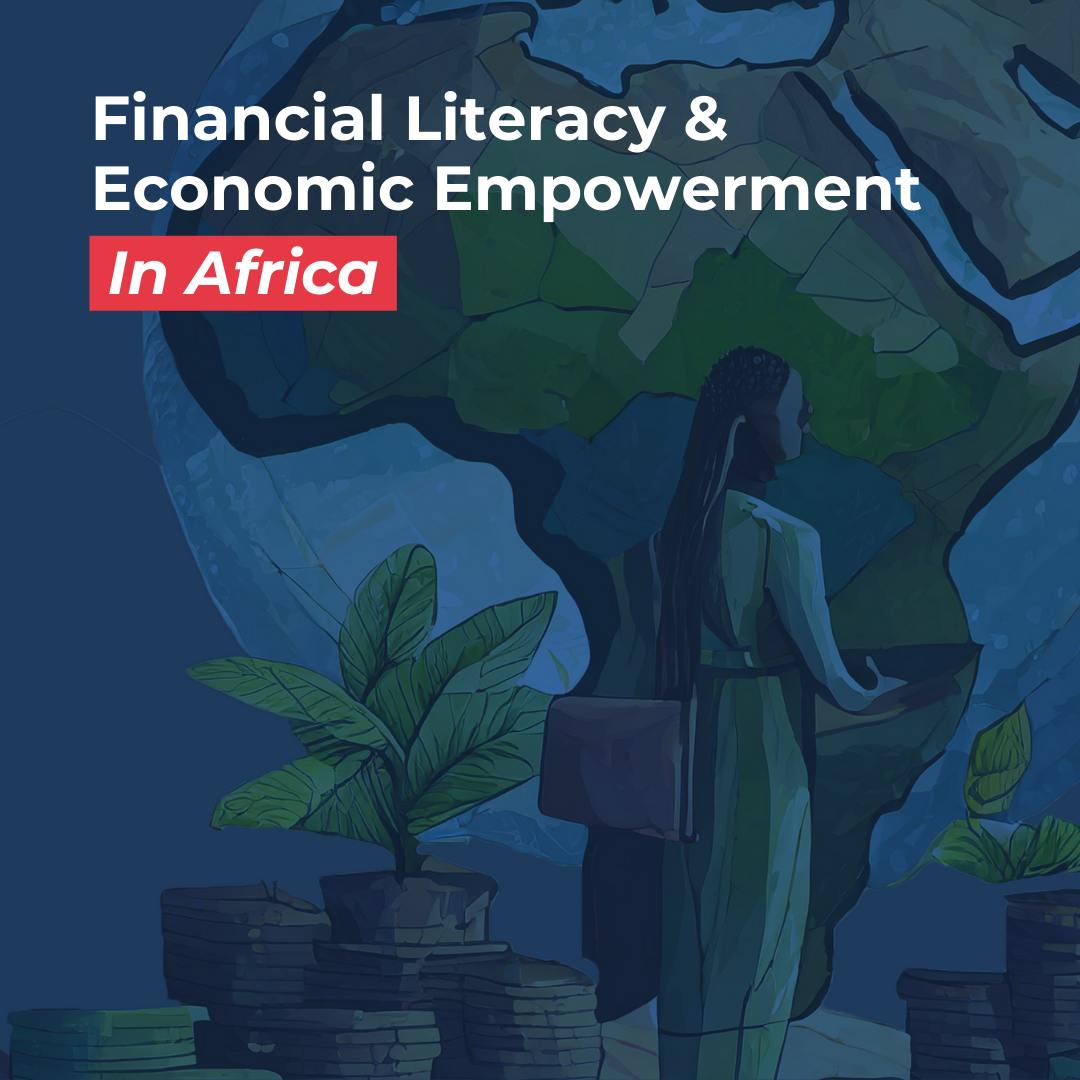CATEGORIES
#Financial Confidence #Technology #Young LeadersOverview:
- Financial literacy enables informed financial decisions and has a significant role in economic development.
- The article acknowledges the varying levels of financial literacy across African countries.
- Challenges such as limited access to education and cultural factors contribute to low financial literacy.
- Leveraging technology and integrating financial literacy into school curricula are suggested as potential solutions.
In the quest for economic empowerment, Africa faces a significant challenge: low levels of financial literacy among its citizens. Financial literacy, the ability to process economic information and make informed financial decisions, plays a pivotal role in shaping individual and collective economic well-being.
Unfortunately, in many African nations, financial literacy levels remain low, hindering the path to economic freedom and prosperity. It is positively correlated with economic development, measured by GDP per capita, and financial development. This issue remains a major challenge for millions of Africans, irrespective of race, class, and education.

The Importance of Financial Literacy
Financial literacy is more than just mathematical prowess; it encompasses the capacity to make informed choices about wealth accumulation, debt management, and retirement planning. These day-to-day decisions, made by individuals, exert a profound impact on the overall economy, sculpting its health and vitality. As the American economist Frederic Mishkin aptly noted, well-informed individuals not only improve their own lives but also contribute to more effective policies and a stronger economy.
Financial Literacy in Africa
A comprehensive study conducted by the Human Sciences Research Council in 2015 revealed that financial literacy among adult Africans falls within the low to moderate range, with a score of 55 out of 100. While this places Africa on par with some developed continents, it highlights a broader African trend of financial illiteracy. This deficit in financial knowledge can be attributed to several factors, including limited access to education, cultural factors, and the historical lack of emphasis on financial education.
One aspect of financial literacy assessed was risk assessment in investments. The study found that Africans exhibited skepticism towards quick-get-rich schemes, with 70% acknowledging the potential for substantial losses in such endeavors. This caution reflects a degree of financial awareness but also reveals the lack of trust in certain financial opportunities.

The Role of Financial Literacy in Economic Empowerment
Financial literacy acts as a bridge to economic empowerment. It empowers individuals to make informed financial decisions, which, in turn, leads to efficient savings allocation, higher returns on investments, and increased participation in financial markets. Moreover, a financially literate population fosters confidence in the market economy, holds financial intermediaries accountable, and creates a favorable policy environment for economic growth.
Theoretical research suggests that financial knowledge is a form of investment in human capital. Those who build financial savvy can earn above-average expected returns on their investments, but there will still be some optimal level of financial ignorance.
Challenges and Opportunities
Addressing the issue of low financial literacy in Africa stands as an imperative for the continent’s economic progress. Governments, non-governmental organizations, and financial institutions all have roles to play in propagating financial education. This could include integrating financial literacy into school curricula, provision of accessible financial education programs, and harnessing technology to extend the reach of financial education.
One of the preeminent hurdles in advancing financial literacy in Africa arises from a historical underemphasis on financial education in basic education providers. This has contributed to low levels of financial knowledge across the continent.
Conventional economic models typically assume individuals can formulate and execute savings and expenditure plans, which require them to have the capacity to undertake complex economic calculations and expertise in dealing with financial markets. However, as detailed below, few people seem to have much financial knowledge, and acquiring such knowledge often necessitates a cost.

The Way Forward
1. Promotion of entrepreneurship and cultivation of business skills.
2. Nurturing confidence in financial decision-making and advocating for responsible credit management.
3. Empowering women and youth, thereby curbing wealth inequality and poverty.
4. A pressing need for inclusive and accessible financial literacy programs.
5. Acknowledgment of the transformative potential of financial literacy in breaking the cycle of poverty.
6. Encouragement of disciplined financial habits and early wealth-building.
7. Integration of financial literacy into the education system.
Conclusion:
Africa’s journey towards economic empowerment is intrinsically linked to the improvement of financial literacy among its citizens. A financially literate population is better equipped to navigate the complexities of personal finance, make prudent investment choices, and contribute to the economic growth of their nations. As we move forward, it is essential for stakeholders across Africa to collaborate in promoting financial education and literacy, thereby unlocking the potential for economic empowerment across the continent. In doing so, Africa can lay a foundation for a more prosperous and financially secure future.


